Tropical paradise? More like purgatory for LGBTQ Pacific Islanders
Colin Stewart is a 45-year journalism veteran living in Southern…
Contrary to the image of six island nations in the South Pacific as a tropical paradise, they are actually countries that cling to harsh, repressive anti-LGBTQ laws. The United Kingdom shone a spotlight on them in preparation for a global LGBT rights conference that it might or might not succeed in hosting in June.
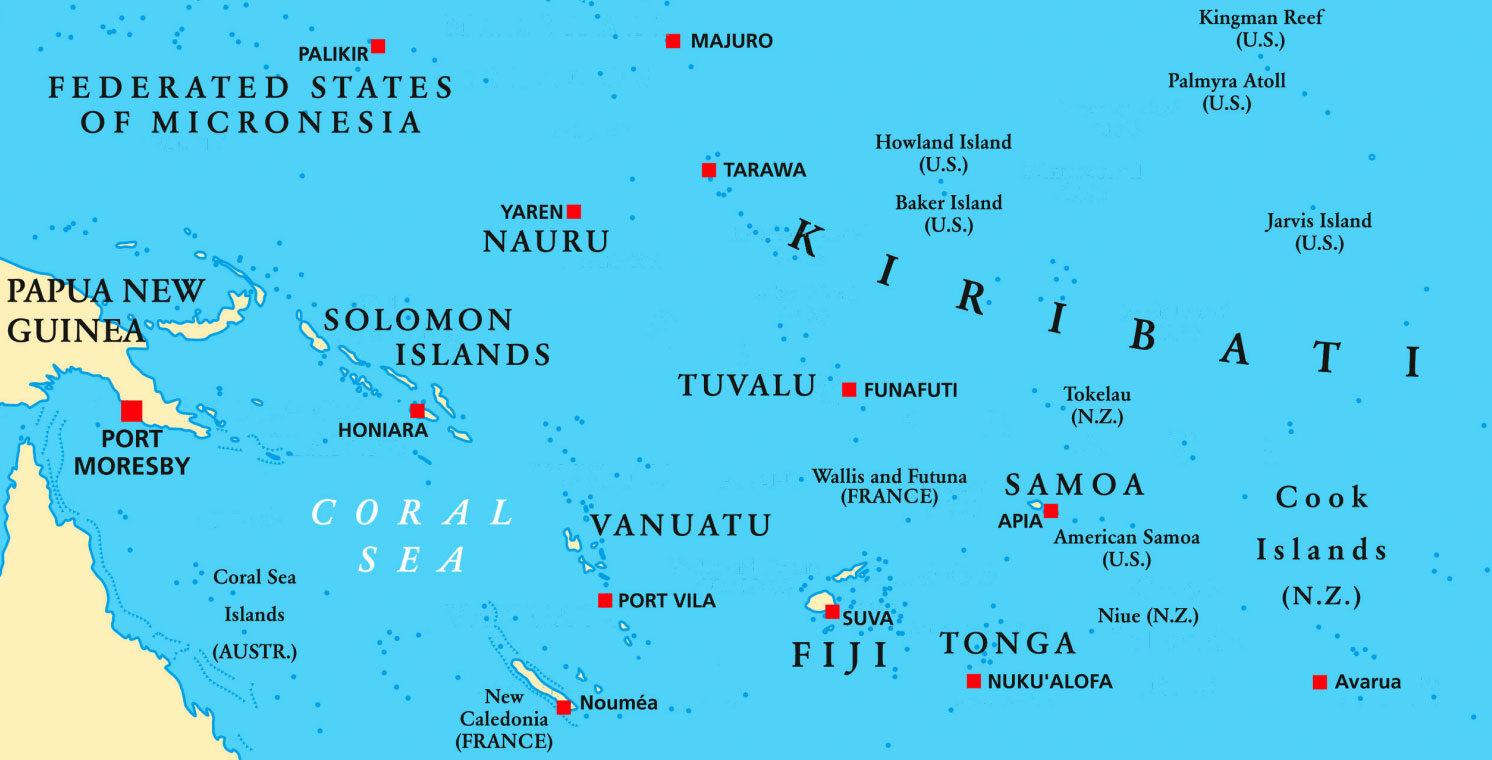
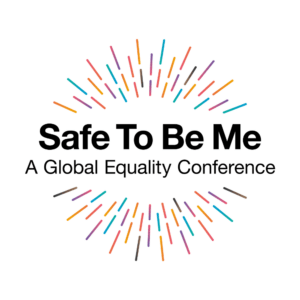
In a report released in preparation for the planned global Safe To Be Me Conference, the U.K. House of Commons Library described six island nations as “largely socially conservative societies with strong Christian ethos [where] being openly LGBT+ can be dangerous. In addition to legal discrimination, social discrimination against LGBT+ people continues, in some cases violently.”
The report’s specifics about each of those nations are detailed below, linked from these highlights and lowlights:
- Cook Islands — A five-year effort to decriminalize homosexuality has not yet succeeded.
- Kiribati — The United States awarded a grant to a local organization advocating for LGBT+ rights in Kiribati.
- Samoa — Censorship of “Rocketman”, “Milk” and “Bohemian Rhapsody”.
- Solomon Islands — Governor General Sir Frank Kabui (2009–2019) took a stand against what he claimed was an agenda of “the rich” who were destroying family values.
- Tonga — Gay rights and trans activist Polikalepo Kefu murdered.
- Tuvalu — No reports that Tuvulu has enforced its law threatening seven to 15 years’ imprisonment for consensual same-sex intimacy.
The fate of the Safe To Be Me: A Global Equality Conference, scheduled in London from June 27 through 29, was thrown into uncertainty this week by a boycott that erupted after Prime Minister Boris Johnson decided to proceed with a long-promised plan to ban so-called “conversion therapy” but without including trans people in that protection. In response, at least 100 LGBT activist groups canceled plans to take part in the conference. Today (April 5), Iain Anderson, the U.K.’s advisor on LGBT people at work, resigned from that role, saying that the government was “trying to drive a wedge” between trans and lesbian, gay and bisexual people.
The turmoil engulfing the conference wasn’t the first time that British initiatives on behalf of LGBT rights have run into trouble.
After Prime Minister David Cameron suggested in 2011 that the U.K. would cut foreign aid to countries that discriminate against LGBTQ people, several African nations proceeded to enact more severe anti-gay laws.
At the time, Ugandan presidential advisor John Nagenda accused Cameron of showing an “ex-colonial mentality” and treating Ugandans “like children.” Ugandans were “tired of these lectures,” he said.
The work of the House of Commons Library is separate from the latest controversy. Below are its observations about Pacific Island nations, where six of fourteen countries retain their colonial-era anti-homosexuality laws:

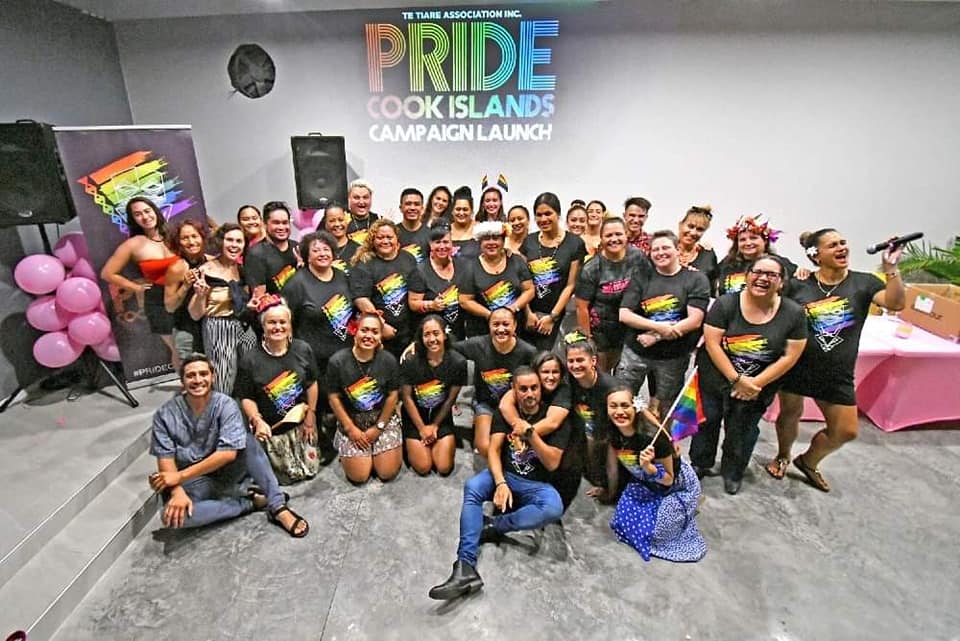
Cook Islands
Legislative context: Cook Islands is a self-governing island which remains part of an association with New Zealand. Homosexuality is illegal in the Cook Islands. Under the Crimes Act 1969, sex between males is punishable by five to seven years in prison.
There is an ongoing effort to decriminalise homosexuality. The Crimes Bill— drafted in 2017—seeks to replace the existing criminal code and in its current form decriminalises homosexuality in the Cook Islands. The select committee scrutinising the Bill have asked for several extensions to their final report, in December 2019, September 2020, November 2020 and again in June 2021 for a further six months.
The Government has stated that the Bill is now with the Parliamentary Counsel Office (PCO) in New Zealand for final draft to ensure that it does not contain any clauses that discriminate.
In March 2022, the Bill was still with the New Zealand’s PCO.
Social discrimination: According to reports in the Cook Island News, LGBTQ+ people in the Pacific island region face “widespread human rights violations” including violence, hate crime, cyberbullying, and discrimination. The impact of the Covid-19 pandemic has also made matters worse through “generating complex challenges and risks” for marginalised communities such as LGBTQ+ people.
In March 2020 the Cook Islands announced their first Pride Day with Pride Cook Islands also becoming involved in the Christmas float festivities in December 2020. However, the Pride Day was postponed due to the Covid-19 pandemic. Much of the work is being promoted by the Te Tiare Association, who are campaigning for the decriminalisation of same-sex activities between consenting adults.

Kiribati
Homosexual relations are illegal under Section 153 of the Penal Code (1977) with a penalty of up to 14 years in prison. The US State Department’s 2020 country reports on human rights practices [in] Kiribati details further information on LGBT+ rights under the chapter titled acts of violence, criminalization, and other abuses based on sexual orientation and gender identity. It says that despite the law there have been no reports of prosecutions for many years. Equally it points out that there are no legal protections against discrimination on the basis of sexual orientation in housing, employment or health care.
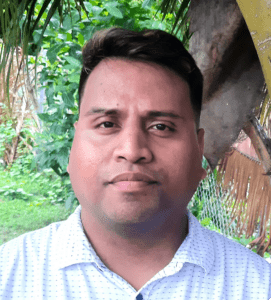
Social discrimination and advocacy: There are no recent reports of investigations into violence and abuse against persons based on sexual orientation. However, the US State Department reports social stigma and the inaccessibility of government services may prevent reporting of incidents of discrimination or violence based on sexual orientation or gender identity.
In March 2021 the US Embassy for Fiji, Kiribati, Nauru, Tonga, and Tuvalu signed a US$ 8,500.00 grant with Boutokaan Inaomataia ao Mauriia Binabinaine Association (BIMBA), an organisation advocating for LGBT+ rights in Kiribati. The grant will allow the organisation to develop and publish advocacy tools to reach a wide range of communities in Kiribati with the purpose of raising awareness on the LGBT+ experience in the region.

Samoa
In Samoa, despite revisions of its penal code as recently as 2013, the Government in 2010 had rejected a recommendation from the Samoa Law Commission to abolish sodomy laws, arguing this was unacceptable in a Christian country.
Notwithstanding, those reforms did include the decriminalisation of female impersonation, affirming the rights of the Samoan fa’afafine community (who identify themselves as third gender/non-binary).
Legislative context: Sodomy, attempting to commit sodomy and “keeping a place of resort for homosexual acts” are all illegal in Samoa. The Human Dignity Trust set out the details, contained in the Crimes Act 2013, criminalising homosexuality:
- Section 67 Sodomy: Criminalises sodomy committed between men, punishable with up to five years’ imprisonment.
- Section 68 Attempt to Commit Sodomy: Prohibits attempts to commit sodomy, punishable with up to five years’ imprisonment.
- Section 71 Keeping Place of Resort for Homosexual Acts: Provides further sanctions against people who are involved in the use of premises for the commission of “indecent acts” between men, punishable with up to seven years’ imprisonment.
The 2013 legislation was an update of older laws. In the process of updating, the Government amended Section 58D of the Crimes Ordinance (1961), decriminalising ‘indecent acts’ between males.11 However, it rejected a recommendation from the Samoa Law Commission to abolish sodomy laws, saying this was unacceptable in a Christian country.
Importantly, the 2013 changes included the decriminalisation of female impersonation, affirming the rights of the Samoan fa’afafine community (see below). In the same year both sexual orientation and perceived or actual HIV status were added as protected grounds to employment laws.
The US State Department’s 2020 annual report on human rights in Samoa notes that the authorities did not enforce the provisions on consensual same-sex sexual conduct between adults, and that these have not been enforced for some time.
Social attitudes and discrimination: About 97% of people in Samoa identify as Christian, and the society is generally considered conservative and traditional. In 2019, the Elton John song “Rocketman” was banned in Samoa because of its depictions of homosexuality.
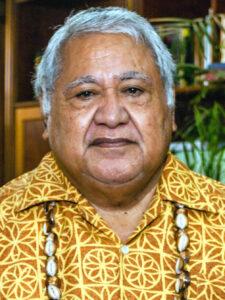
Under Samoa’s film classification guide, films that include explicit sexual activity, explicit sexual violence, promotion of drugs or offence to religions are subject to bans. The 2008 film “Milk”, in which actor Sean Penn portrayed American gay activist Harvey Milk, was banned for the same reasons. Though in the 2018, a screening of “Bohemian Rhapsody”, the biopic of Freddie Mercury, was permitted only after certain scenes had been cut.
In December 2017, then Prime Minister, Tuilaepa Sailele Malielegaoi, said there would be no same-sex marriage in Samoa. Mr Malielegaoi described same-sex marriage as an abomination and a “Sodom and Gomorrah practice.” Mr Malielegaoi’s Human Rights Protection Party also changed the country’s constitution earlier in 2017 to formally make Samoa a Christian state.
Trans rights: According to the ILGA, it is possible to change your name by deed poll and to change your name on your Driver’s License and Passport. Birth certificates cannot be altered, however, and it is not possible to change your gender marker on official documents.
Fa’afafine: While not directly analogous to being transgender, Samoa, like other Polynesian countries recognises a non-binary “third gender” known as Fa’afafine. The term translates as “in the manner of a woman”. The US State Department 2020 report notes that although society generally accepted the traditional Polynesian transgender, nonbinary Fa’afafine community, members of the community reported instances of social discrimination.
In 2019, Reuters produced an article looking at Fa’afafine in Samoa: Most villages have fa’afafine, with an estimated several thousand across Samoa’s islands. Outside the South Pacific, particularly the Polynesian islands, it is a largely misunderstood community, according to Lee Hang, who works for the government’s fisheries department. “Western society tries to fit us [in] a box, to put us under gay, under trans and queer … but I think fa’afafine is our cultural identity – it defines us,” said Lee Hang. Although most modern fa’afafine partner with men, the identity makes no claim about sexual orientation.

Solomon Islands
In the Solomon Islands the Governor General in 2018 spoke openly about the his desire to resist international pressure to accept, for example, same-sex marriage.
Legislative context: Consensual same-sex activity is illegal in the Solomon Islands. The 1996 Penal Code includes clauses reflecting the prohibition of various actions:
- Section 160 Unnatural Offences: Criminalises “buggery”, with a penalty of fourteen years imprisonment.
- Section 161 Attempt to Commit Unnatural Offences and Indecent Assaults: Criminalises attempts to commit the offences outlined in Section 160 or any indecent assaults upon a man, with a penalty of seven years imprisonment.
- Section 162 Indecent Practices Between Persons of the Same Sex: Prohibits acts of “gross indecency” with a person of the same sex, or the procurement or the attempted procurement thereof, with a penalty of five years imprisonment. Such acts between men and between women are criminalised.
The Human Dignity Trust commented that the legislation uses derogatory and stigmatising language for these offences, such as buggery, gross indecency, unnatural offences and indecent practices. The US State Department’s annual report on human rights in the Solomon Islands, states that despite these laws, they do not appear to have been enforced in 2020: There were no reports of arrests or prosecutions directed at lesbian, gay, bisexual, transgender, or intersex persons under these provisions during the year, and authorities generally did not enforce these laws. It notes that while there are no specific anti-discrimination laws, there were no reports of violence or discrimination against people based on sexual orientation or gender identity, although it considered that social stigma may hinder some from reporting.
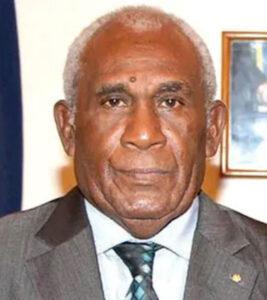
According to ILGA World although the Solomon Islands’ Law Reform Commission proposed the decriminalisation of consensual same-sex intimacy in 2011, it made no mention of this recommendation in its 2013 Second Interim Report on Sexual Offences.
Social attitudes and discrimination: In June 2018, the Solomon Islands’ Governor General Sir Frank Kabui spoke about same-sex marriage and LGBT+ issues during the Queen’s birthday celebration in Honiara. He acknowledged the international pressure for the Islands to change their laws, but expressed opposition to change:
The question for us is whether or not we will continue to maintain our current position or instead change our position and be like others, the issue of same-sex marriage is coming and we ought to prepare ourselves to deal with it. Let me make it clear, that being gay or homosexual is not the issue, people of this description is everywhere in our societies, it is as old as humanity itself. It is not wrong to born with gay or lesbian inclination, it is said to be biological and is beyond individual control. Be that as it may, there is however a choice either practicing it or not with another person of same sex is a matter of choice, practicing it in private or openly when universal acceptance is therefore the issue today.
Kabui further remarked that he was opposed to introducing or teaching about gay and lesbian rights in schools. His view was that this was an agenda of “the rich” who were effectively destroying family values. He said:
Our challenge is to continue to remain steadfast against this onslaught, the international gay and lesbian advocates are steadfastly chipping at the edges with the hope that they change the world and accept same-sex marriage.
According to the Foreign Office’s annual Human Rights Report, in 2019 the Solomon Islands established a new body within government to focus on the promotion and protection of human rights.
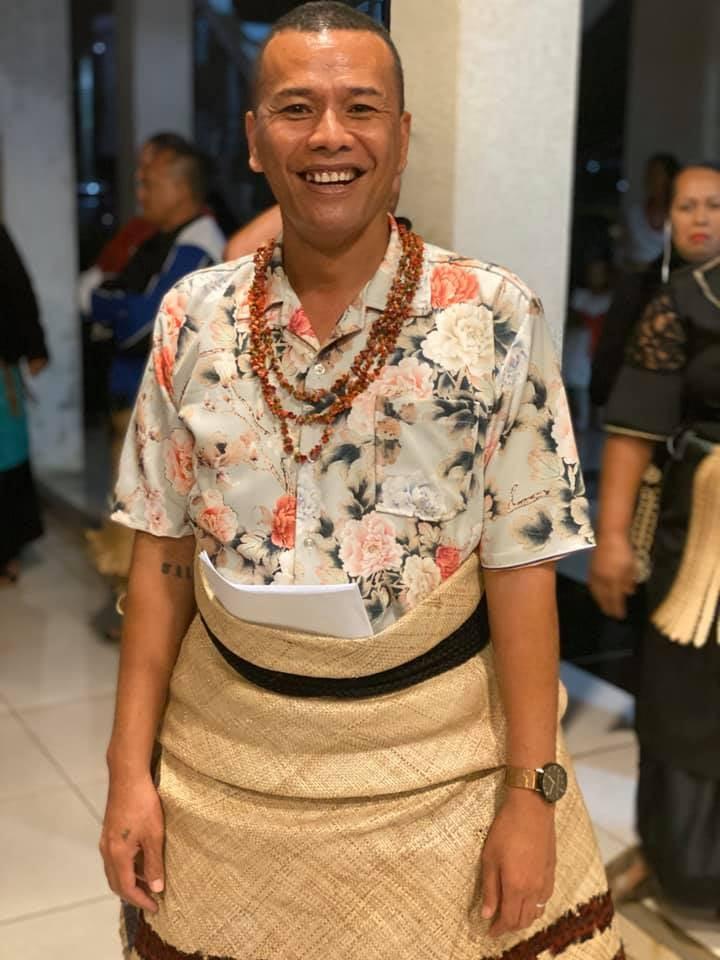
In May 2021, the gay rights and trans activist Polikalepo Kefu was found murdered on a beach in Tonga. Although police have not confirmed whether the killing was a hate crime, ILGA Oceania issued a statement saying:
Throughout Oceania, members of ILGA Oceania still face violence and discrimination because of our sexual orientation, gender identity and expression or intersex status. For the majority, these issues are linked to broader issues of gender equality, autonomy over our bodies and lives, sexual and reproductive health and rights. As well as multiple and intersecting forms of discrimination on the basis of factors such as class, poverty, occupation as sex workers, religion, race, HIV status and disability.
Legislative context: Same-sex sexual acts between men are illegal in Tonga. Section 136 of the Criminal Offences Act (1988) penalises the crime of sodomy with up to 10 years’ imprisonment. The law also provides for corporal punishment under section 142 of the Criminal Offences Act (1988) for those convicted of sodomy. According to that law, if a man is convicted of sodomy, “the Court may, in its discretion in lieu of or in addition to any sentence of imprisonment authorised under this Act order the person so convicted to be whipped”.
The US State Department 2020 country reports on human rights practices says there were no reports of prosecutions under this provision for consensual same-sex sexual conduct between adults. The Human Dignity Trust notes that while the law is termed in gender neutral language, only male homosexuality seems to be generally acknowledged in Tonga.
In 2013, the Supreme Court refused to grant custody of a child to a gay man, The Court said because Tonga’s criminal law still prohibits carnal knowledge between consenting adults of the same sex, “[n]o court would entrust a very young child into the care of person whose lifestyle carries with it a very real risk of prosecution.”
Social attitudes and discrimination: Despite Tonga’s criminalisation of sodomy and its socially conservative society, in 2018 the Honorable Frederica Tuita Filipe, the daughter of Tonga’s Princess Royal, spoke out against the social media posts of Australian rugby player Israel Folau. Folau, Tongan by descent, had written that gay people would go to “hell” unless “they repent their sins and turn to God” on his Instagram page. …
The US State Department’s 2020 country report on human rights practices: Tonga discusses LGBT+ rights in Tonga and notes that there are no laws to prevent discrimination or protect those subjected to hate crimes.

Tuvalu
Legislative context: Under the Tuvalu penal code, sex between males is punishable by up to 14 years in prison. The US State Department’s 2020 country reports on human rights practices [in] Tuvalu [notes]: The law prohibits consensual sexual conduct between men, with penalties of seven to 15 years’ imprisonment, but there were no reports the government enforced these provisions of the law.
The law does not specifically prohibit discrimination based on sexual orientation or gender identity. There are no hate crime laws, nor are there criminal justice mechanisms to aid in the prosecution of bias-motivated crimes against members of the lesbian, gay, bisexual, transgender, and intersex community. There were no reports of violence against persons based on sexual orientation or gender identity, but social stigma or intimidation may inhibit reporting of such discrimination or violence.




